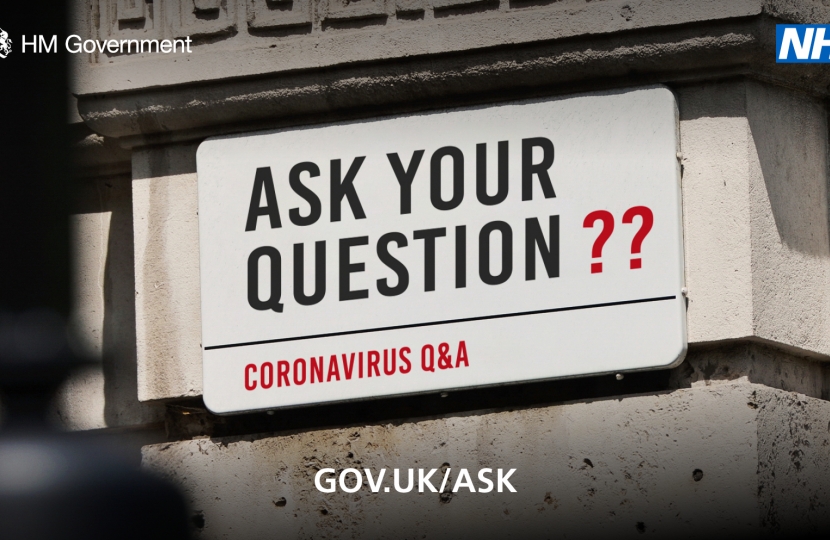
Over 350,000 questions have been submitted through the ‘Ask a question at the coronavirus press conference’ service. These are the most common
When schools are reopening:
What’s the rationale behind sending reception, year 1 and year 6 students back to school?
Early childhood is the most important time for cognitive, social and emotional development. That’s why we are prioritising places for the youngest children learning the essentials of reading, writing and counting. This also helps parents return to work, or work more effectively from home, given these children need the greatest care.
Pupils in other years will continue to be educated remotely until they return to school.
How do we make sure our children keep their distance from each other at school?
Through gradually increasing the number of children and young people attending schools and colleges, we’re able to take measures to reduce transmission, such as small group and class sizes, and altering the environment such as classroom layout and staggering break times. This all helps children to keep their distance from each other.
Schools are also putting in place measures to ensure the highest standards of safety. This will include more frequent washing of hands, encouraging good respiratory hygiene (cough etiquette) and regular cleaning of surfaces that are touched frequently.
The guidance is that if a child becomes unwell with a new, continuous cough, a high temperature, or loss of, or change in, their normal sense of smell or taste (anosmia) they must be sent home and advised to follow the COVID-19 guidance for households with possible coronavirus infection.
Is it safe to send my child back to school if we’re shielding?
For the vast majority of children and young people, coronavirus is a mild illness.
However, if someone in your household is extremely clinically vulnerable, as set out in the guidance on shielding and protecting people, then your child should only go to school or a childcare setting if stringent social distancing can be followed while they are both there and at home.
This may not be possible in the case of young children and older children without the capacity to adhere to the instructions on social distancing.
If social distancing rules cannot be followed, those children should be supported to learn or work at home.
Will I be fined if I choose not to send my child back to school because I don’t believe it’s safe?
No. We urge as many children in eligible groups as possible to attend. However, we will not fine parents for keeping their children at home.
Related content
What parents and carers need to know about schools
Using protective equipment in schools
Rules for reopening businesses
Can small gyms and clubs reopen if they follow social distancing and hygiene measures?
No, gyms and leisure centres remain closed, because the risk of transmission in these indoor environments is higher. You cannot exercise in an indoor fitness studio, gym, swimming pool, or other indoor leisure centres or facilities. They will reopen in phases provided it is safe to do so.
Are hairdressers and beauty salons classified as hospitality or retail? When can they reopen?
Hairdressers and beauty salons remain closed, at least until 4 July, because the risk of transmission in these environments is higher due to the indoor environment and closer physical contact. We will work with the personal care sector to develop safe ways for them to open at the earliest point at which it is safe to do so.
Related content
Businesses and venues that cannot open yet
Plans to reopen non-essential retail
Blood donors and immunity
Will blood donors be tested?
No, we do not test blood donors for coronavirus because there is no evidence it is transmitted through blood donation.
However, we are asking donors with symptoms of the virus to wait 14 days after recovery before coming to a donation session. We have also put extra safety measures in place to make sure blood donation is as safe as possible.
Does having had the virus result in immunity and how long does it last?
We do not currently know if having had the virus results in immunity. COVID-19 is a new disease and the science around immunity to the virus remains uncertain. There is currently no firm evidence that the presence of antibodies means someone cannot be re-infected with the virus or will not pass it on to someone else.
If you test positive for antibodies, or think you have previously had the virus, you must still follow social distancing measures.
We are conducting some of the largest studies in the world to help inform our understanding.
